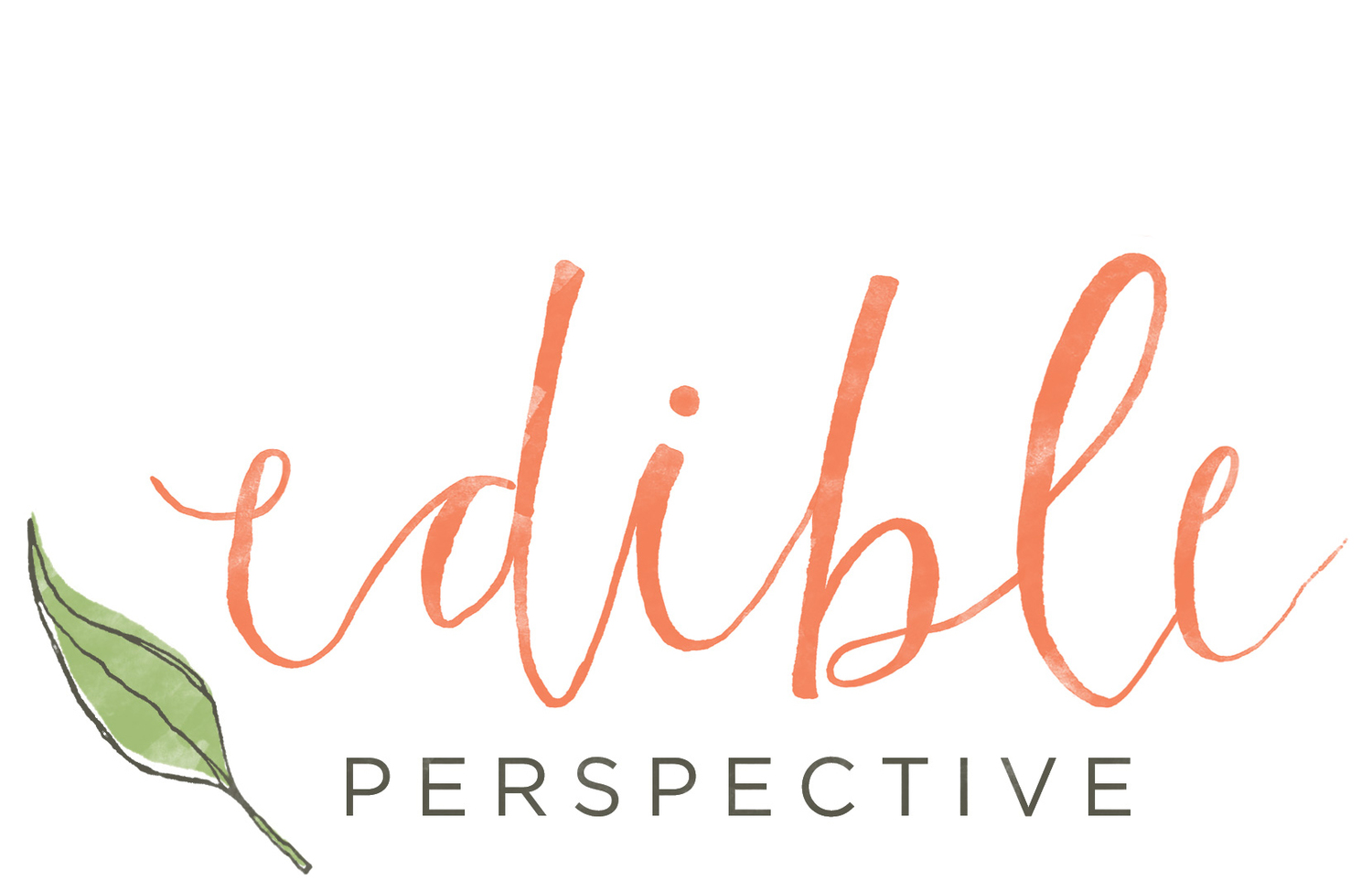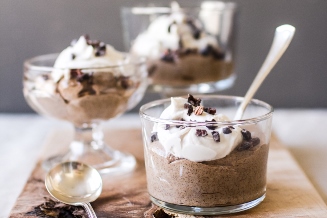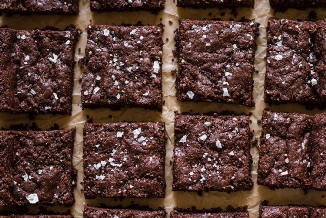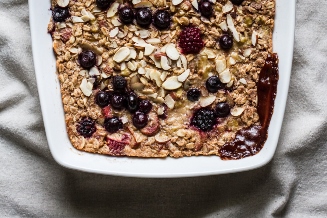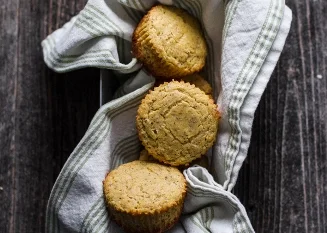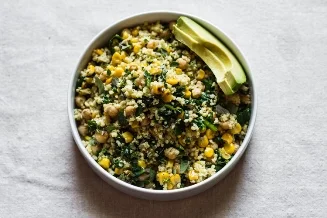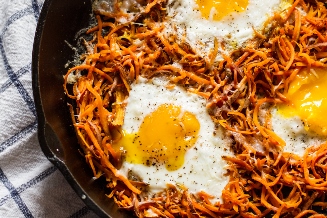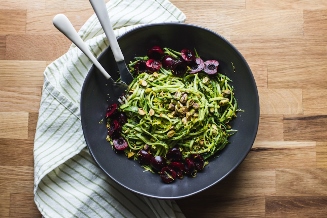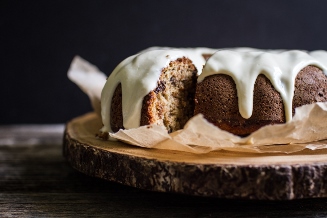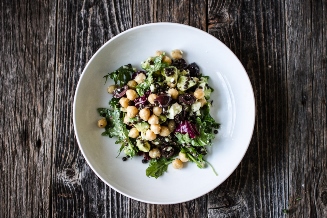Here is what we’ve done so far…
1] Chris built the raised planter box.
2] I removed all of the weeds from below.
3] We covered the base with weed barrier because our backyard is full of weeds that turn into small trees. No joke. There is nothing stopping them. I know a lot of the weeds are dandelions, which are edible, however, a lot are not. We actually have quite invasive weeds in our backyard that are actually monitored by the city! Also, our backyard is not truly a yard. It’s covered in rocks and is where cars park since we have no garage. We have alley access to our back”yard” which is very typical in Ft. Collins. Garages are not visible from the streets here.
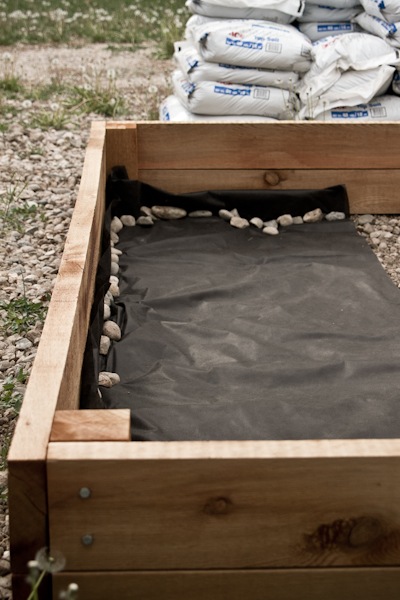
4] We bought a ton of topsoil and luckily hit a good sale at ACE Hardware.

5] One of the secret ingredients mixed into our soil [from the other day] is Cocogro coconut fiber!! It’s used instead of peat moss and has loads of benefits. ie: requires less watering, great drainage, helps retain nutrients, anti fungal properties, etc.

6] The third ingredient we used is called Agrichar. It was actually developed by a biochemist here in town, and the only store where you can find this is in Ft. Collins. We talked to the bio chemist and got to look at loads of studies he has done using this product. We were blown away.
A few cool things about this product:
- superior water retention
- builds a living soil structure
- better nutrient retention
- reduces green house gases
- no need to till the soil
- little to no need for using fertilizer
For more detailed information check the Bath Garden Site. I cannot even begin to explain how it works! We are excited to see what happens. Up front, this whole system cost about $40-50 more than a more standard mix of ingredients [soil, compost, peet moss, etc]. However, if all goes as planned it will save us money, as there should be no need to add anything else to the soil from year to year.

7] Instead of buying a wheelbarrow [ummm they are like $50-100!] we used an empty plastic storage tub. Totally worked for soaking the coconut fiber blocks that you have to soak in water before mixing with the soil.

8] We used 60% topsoil, 30% coconut fiber, and 10% Agrichar.

9] We layered soil, then coconut fiber, mixed them together, and repeated two more times.

10] Here is what the coconut fiber looks like after it soaks up 10 gallons of water. It smelled amazing!

11] mix, mix, mix

12] This is what the soil + coconut fiber looks like after being mixed.

13] The Agrichar is simply sprinkled on top and then doused with water.

14] We’re trying to follow the square foot gardening method. To mark the feet off I used bamboo skewers + twine.

15] I stuck in a skewer every foot, then double knotted the twine on each end.

16] We have 32 square feet waiting to grow a lot of veggie goodness. I hope!

17] Per a readers suggestion, we’re covering the weeds with a tarp to kill them. They should die from lack of sun + moisture in a few weeks. We’re probably going to mulch around the veggie box to further help keep the nasty weeds away. We also spread out the extra top soil bags for coverage as well.

18] I perused a companion planting guide and so far with what we’re growing, shouldn’t have any neighborly problems. I used extra wide popsicle/craft sticks to mark which veggie goes where.

19] Tomorrow I plant and hope that it’s not too late into spring! Typically it isn’t out here, but this year has been very unseasonable. We’ll see how it goes!
Here’s what will be grown so far:
- kale
- carrots
- chard
- broccoli
- sugar snap peas
- spinach
20] I really know nothing about gardening!
21] Goodnight!
Ashley
